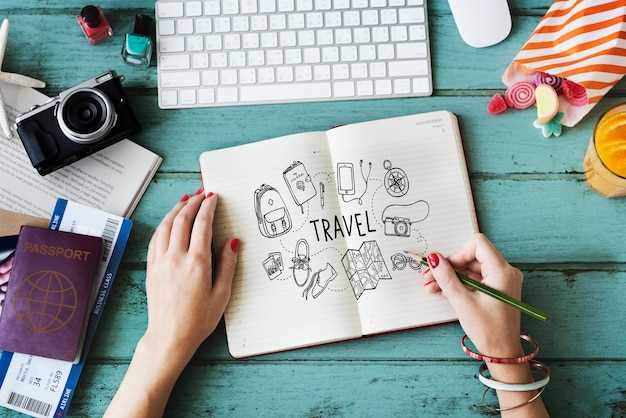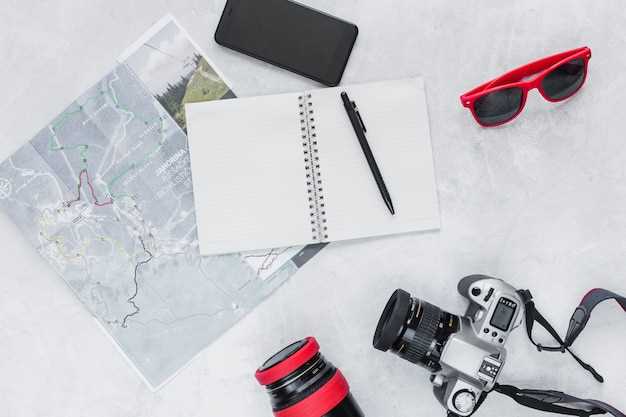
Traveling opens doors to new experiences, cultures, and adventures that enrich our lives. However, transforming a trip from a dream into reality requires meticulous planning and preparation. Whether you’re embarking on a solo journey or organizing a family vacation, thorough travel planning is the key to a successful and enjoyable trip.
In today’s fast-paced world, a well-structured travel plan helps minimize uncertainties and maximize enjoyment. This comprehensive guide aims to equip you with the essential tips and strategies you need for effective travel planning. From choosing the perfect destination to managing your budget and ensuring your safety, we’ve got you covered with insights and advice that will make your travel experience seamless.
Dive into this guide as we explore crucial aspects of travel planning, empowering you to overcome challenges and make informed decisions. Whether you’re a seasoned traveler or a first-time explorer, these tips will serve as your trusty companion, helping you create unforgettable memories with ease and confidence.
Understanding Your Travel Goals

Determining your travel goals is a fundamental step in planning any successful trip. It involves introspection about what you truly wish to gain from your travels. Start by considering the primary reason for your journey. Are you seeking relaxation on a serene beach, or do you crave the excitement of adventurous activities in the mountains?
Consider the experiences you wish to have and the places you want to explore. Each traveler has different interests, whether it’s exploring vibrant city life, immersing in cultural heritage, or engaging in nature-based activities. Align your destination and itinerary with your personal interests to ensure a fulfilling experience.
Time is another crucial factor. Determine how many days you have for traveling, as it helps narrow down potential destinations. Remember to balance activity-packed days with some downtime to relax and unwind.
Budget is equally important in shaping your travel goals. Calculate your financial resources and decide how to allocate funds for accommodation, transport, meals, and activities. Understanding your budgetary constraints allows you to make informed decisions and avoid unnecessary stress during your trip.
Consider the type of travel companions that enhance your journey. Whether traveling solo, with family, or friends, ensure that everyone’s expectations and interests are considered in the planning process.
Ultimately, having a clear understanding of your travel goals leads to a more organized and rewarding travel experience, helping you make memories that align with your desires and aspirations.
Researching Destinations and Cultures

Understanding a destination is crucial for a fulfilling travel experience. Begin by identifying local customs and traditions unique to the area you plan to visit. This knowledge helps you respect the culture and avoid unwittingly offending local sensibilities.
Consult travel guides, blogs, and forums for insights from recent visitors who can provide updated tips and recommendations. Explore online resources that highlight must-see attractions, regional cuisine, and cultural nuances.
Engage with local communities through social media platforms to gain first-hand insights about the destination. This interaction allows you to ask questions and receive advice tailored to your specific needs and interests.
Familiarize yourself with the history and language of the region. Learning a few essential phrases can enhance your interaction with locals and demonstrate respect. Additionally, historical context enriches your understanding and appreciation of cultural landmarks and events.
Lastly, consider the climate and seasonal changes to plan activities accordingly. Understanding the weather patterns helps in packing appropriately, ensuring you’re prepared for any eventualities during your trip.
Budgeting for the Journey
Creating a travel budget is a foundational step for a successful trip. Begin by determining your total available funds and set aside an additional emergency reserve. This ensures financial stability should unexpected costs arise.
Research your destination to estimate accommodation, transportation, food, and entertainment expenses. Use online platforms to compare rates and find deals, always looking for discounts or packages.
Prioritize spending according to your interests–whether it’s gourmet dining, adventure activities, or cultural tours. Allocate more funds to these preferred experiences while saving on less important aspects.
Track expenses as you travel to avoid overspending. Consider using budgeting apps to manage your finances efficiently and keep an eye on exchange rates if traveling internationally.
Flexibility with plans can lead to cost savings. Be open to alternative routes or off-peak visits, which often offer lower prices.
Finally, review your budget post-trip. Understanding your spending patterns will refine future travel planning and ensure you stay on financial track.
Saving Money on Expenses
Traveling can quickly become expensive, but with some strategic planning, you can significantly cut costs. Start by setting a budget to help manage your expenses. Prioritize essential expenditures and allocate funds accordingly. Use apps and tools to track your spending in real-time, ensuring you stay within your budget.
Booking flights and accommodations in advance often yields considerable savings. Consider traveling during off-peak seasons to take advantage of lower prices and fewer crowds. Flexible dates offer opportunities to snag deals on flights and hotel stays. Compare different airlines and accommodation options to find the most economical choices.
Utilize rewards and loyalty programs where possible. Many airlines and hotels offer points for frequent travelers, which can lead to discounted or free bookings in the future. Credit cards with travel rewards can also help you garner points that reduce expenses.
While dining out, seek local eateries offering authentic cuisine at more affordable prices than typical tourist hotspots. Visiting markets or grocery stores allows you to prepare meals, saving more money. Also, carry a refillable water bottle to avoid purchasing drinks constantly.
Public transportation is often more cost-effective than renting a car or frequently using cabs. Investigate passes or discount cards that provide unlimited travel in certain areas. Walking or biking is not only free but provides a great way to explore your destination more intimately.
Embrace free attractions and activities such as parks, museums with free entry days, and city tours offered by local volunteers. Research in advance to identify any free festivals or events coinciding with your visit.
Packing Essentials and Smart Tips
Packing efficiently can make your travel experience much smoother. Consider these essential items and smart tips for a successful trip:
- Check the Weather: Always review the forecast of your destination to pack weather-appropriate clothing.
- Layer Your Clothes: Opt for clothes that can be easily layered to save space and add versatility.
- Select a Versatile Wardrobe: Choose items that can be mixed and matched to create multiple outfits.
- Essentials First: Prioritize essentials such as underwear, socks, and a comfortable pair of shoes.
- Limit Toiletries: Consider travel-sized containers and remember most hotels provide basic toiletries.
- Use Packing Cubes: These help organize your luggage and compress clothing to maximize space.
- Secure Important Documents: Carry passports, IDs, and reservations in a secure travel wallet.
- Roll Clothing: Rolling rather than folding can prevent wrinkles and save space.
- Pack a First-Aid Kit: Include bandages, pain relievers, and any necessary prescriptions.
- Bring a Reusable Water Bottle: Staying hydrated is crucial and eco-friendly when using refillable bottles.
Keep these tips in mind to ensure you have everything you need while avoiding overpacking and travel hassles.
Staying Organized and Adaptable

Maintaining a detailed itinerary is essential when traveling. Start by listing all destinations, accommodations, transport schedules, and activities. Organize this information in a digital format, allowing easy updates and access on-the-go.
Use apps like Google Maps and TripIt to centralize your travel plans. These tools provide real-time updates and allow you to share your itinerary with travel companions.
Prepare a checklist of essentials for your trip. Include documents like passports, visas, insurance, and emergency contacts. Always have both physical and digital copies accessible. Consider using cloud storage options such as Google Drive or Dropbox for added security.
Embrace flexibility, as plans may change due to unforeseen circumstances. Cultivate an adaptable mindset to navigate travel disruptions. Set aside buffer time between major activities and have alternative options ready.
Stay informed about local events and weather conditions which might affect your schedule. This awareness will aid in seamless adjustments when needed.
Finally, maintain communication with locals and fellow travelers. They can provide invaluable insights and recommendations, enhancing your travel experience.